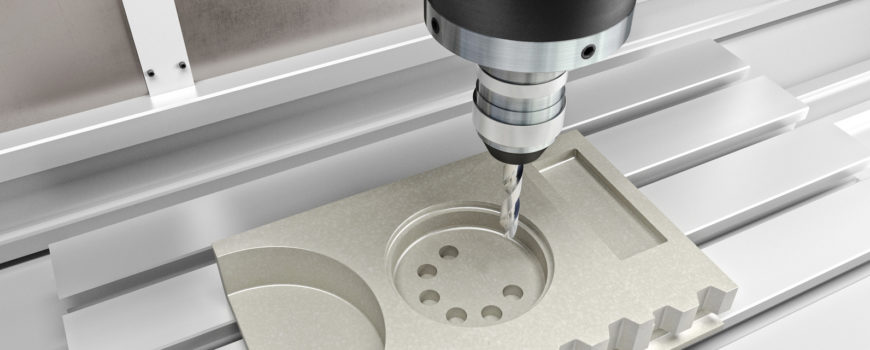Manufacturers are constantly faced with a variety of challenges and staying competitive and profitable requires the ability to identify issues and enact effective resolutions that can adequately provide a remedy. One of the biggest challenges manufacturers will face in 2019 is creating new markets for custom manufacturing. Perhaps a company can identify a need for a particular product for an emerging market, but creating the avenue to successfully engage that need and fulfill the gap poses a definite challenge.
Identifying Emerging Market Potential
The ability to identify an emerging market and firmly secure a place for custom and precision manufacturing companies within that market is one of the keys to promoting growth and remaining competitive in an ever-changing business landscape. Each year, there are new products and services being developed in mass for the consumer marketplace. If a manufacturer can get a lead on identifying the next big market in which they can provide custom or precision manufacturing, they will have an advantage over the other competitors.
The most effective way to identify these new emerging markets is through research. Part of that research may also involve engagement with a variety of potential consumers across several demographics to establish viability. Having highly trained and insightful staff who can accurately gauge the interest in a particular emerging market and focusing in on specific details that involve providing necessary manufacturing processes will allow companies to partner with new and exciting businesses.
Show How Custom Manufacturing Can Replace Traditional Methods
An effective way to secure the confidence of new clients in emerging markets is to show them how manufacturers can improve on a product and make it more appealing and of a higher quality. Replacing traditional manufacturing that can’t offer the same benefits will allow those products to be more well rounded and versatile. Adding better, high quality 1 features and making more versatile products will benefit all parties. Here are some key points to address and focus in on when presenting an argument for selecting customer or precision manufacturing for new emerging markets.
- Value
One of the most important topics related to manufacturing is value. Manufacturers should focus on proving their clients with value they can’t find elsewhere. The argument for value can be presented by highlighting the benefits of using specially created custom parts that add to the function, durability, and quality of a consumer good.
- Originality
The best way for a product to stand out from the crowd is by having the originality factor. Businesses which feature products that are unique in design and provide specific features that other products in a competing market can’t offer will allow them to create a niche for themselves and provide an extra foothold. Manufacturers can also present their argument for providing originality showing examples of custom machinery that they can provide to produce unique features for a product that make a company and their offerings unique within the market.
- Quality
Quality is always a factor when consumers make a purchase regardless of the specific product or market. When working to create a new market for precision and custom manufacturing, highlighting the quality factor they can provide is essential to partnering with new companies within an emerging market. Pinpoint exactly how the manufacturer can provide a high level of quality that sets their brand apart and makes it an attractive option to consumers.
Utilize Tax Credits For Research Funding
As mentioned previously, one of the keys to creating new markets for custom and precision manufacturers is through research. These companies can actually receive tax credits by using R & D tax incentives. They were enacted in 1981, and were designed to assist companies that are producing new products or even improving on an older variety of product. Harnessing these tax credits will allocate additional funding for research and development to help create and establish new markets for the manufacturing companies. The following are examples of how these tax credits can be utilized for manufacturers to create new markets.
- Research conducted at institutions such as colleges or other research organizations.
- Expenses related to employees who play an integral part of the companies research and development.
- Third parties who are hired to conduct research and research related tasks on behalf of a manufacturer.
- Tangible supplies that are used to conduct research and development. This tax credit covers property and land improvements related to these processes as well.
In order for a company to qualify for this tax credit, it must fall within the guidelines presented by the IRC section 41, which defines the protocol. Essentially, these guidelines are used to demonstrate how a manufacturer is creating new or improved products. This tax credit can also apply to new software, inventions, or techniques that can be used within the consumer market. In the case of software, there are additional qualifying criteria which must be met to qualify. These tax credits can prove to be especially beneficial for research and development of a CNC Company and American manufacturing companies. These credits can dramatically reduce the cost of staying on top of development of new machinery and equipment necessary for working within new markets.
Companies producing machinery and precision manufacturing equipment must constantly evolve to remain a competitive entity within their market. This entails the use of a combination of research, development, technology, and creative marketing skills. Creating new markets to work within may be one of the toughest challenges these companies face in 2019, but with some insight and a solid strategy to appeal to those key individuals working to establish emerging markets, they can rise to the occasion and provide quality products and machinery these new companies need to provide products consumers want to purchase. For more information, visit the Tag Team Manufacturing website and browse the blog. Tag team is a CNC company and American manufacturing partner dedicated to providing clients with the parts they need for their businesses.





